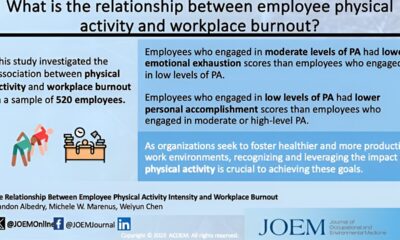Finance
Wisdom about value and work

What do we want from our life and our work? In In October 2023, I participated in a debate at my university, Western Carolina University, about whether gender-affirming care for minors should be banned. When it was my turn, I mainly stuck to the facts. I have cited medical organizations, physicians, and meta-analyses. Although we argued for the same conclusion, my professor, Dr. Sean Mulholland, opted for a different approach. The first words out of his mouth were, fittingly for an economist, from Adam Smith. But, perhaps surprisingly to some, from Smith’s The theory of moral sentimentsa work on moral philosophy: ‘Man by nature desires not only to be loved, but also to be lovable.’
One aspect of Smith that I find commendable is the way his thoughts apply to an infinite number of situations. Dr. Mulholland emphasized self-expression and individualism by affirming gender identity as a Smithian idea. While listening to Brent Orrell on The great antidote podcast With Juliette Sellgren, I noticed a similar idea being applied to work.
Orrell and Sellgren discuss the importance of finding intrinsic worth and value in one’s work, and how to do this in a moving and vibrating economy full of demographic and technological change. Orrell emphasizes that the ambitions of young people should not be put aside solely for financial gain. Orrell wants to help young people answer what he calls “the drunk uncle question.”
This is the question you get at the Thanksgiving table when your uncle asks you what you’re studying. If it’s not a technical field like computer science, his follow-up question will be, “Well, what are you going to do with that?” As if that were some kind of downer question, like if you can’t tie your interests directly to an economic outcome, then they’re somehow not worth it.
Orrell sees this attitude damaging the prospects of the younger generation of Americans. He wants them to find work that is fulfilling and useful to society. In a Speaking of Smith message titled, Calling: a cure for burnout Orrell and David Veldran emphasize that we should welcome creative destruction through technological advances precisely because these transitions are more vocational and less monotonous. The key to a productive division of labor is that workers can find jobs that stimulate their creativity.”[These jobs] tend to be more satisfying, more energetic and better suited to our desire for dignity at work.” Salary and purpose go hand in hand at Orrell.
This may seem like a minor concern, but Orrell points out how refusing to fulfill the innate human need to be understood undermines a person’s individuality and sends the message that they are not. worthy of understanding in the first place. This can lead individuals to choose work that is not optimal for them and harms the division of labor through improper specialization. The economy is bereft of highly productive professors of English literature or anthropologists, at the expense of substandard computer scientists.
In another Speaking of Smith after, Except being niceShal Marriot phrases Smith’s quote as: “the desire to be understood and to be worthy of that understanding.” To me, Orrell’s problem with ‘the drunk uncle issue’ and the pervasive view that work is separate from self-actualization reflects this.
Failure to respect human dignity is harmful to all but a very small number of successful tenants. Orrell understands this and knows that there is nothing efficient about pushing aside human dignity. Orrell sees a world where the core value of work is recognizing humanity.
Orrell’s advice and prescriptions for the future of work are valuable and relevant to a changing and progressive American economy. But it is more difficult to apply these ideas to people without an appropriate level of socio-economic privilege. Yes, America is the most economically prosperous country in the world, and encouraging those who have the resources to pursue what they love benefits us all. But poverty is still real and limiting. This includes systemic discrimination against marginalized people, especially non-white people and LGBTQIA+ people. We must ensure that the luxury of pursuing personal ambitions does not only apply to whites and the rich.
This is not permanent. The great enrichment includes hundreds of millions of people who strive for self-realization rather than merely being ashamed of survival. As Orrell states in his article: “The common basis of human dignity”, “The American story in particular is one of a gradual expansion of principles and laws that protect the dignity and rights of the person.” This expansion of the principles of individuality, mutual respect, and the will to understand are not only critical to economic growth in an innovative and changing economy, but are also necessary elements of social progress and fulfilling the American vision.
Kevin Lavery is a student at Western Carolina University studying economic analysis and political science and was a 2023 Summer Scholar at the Liberty Fund.













